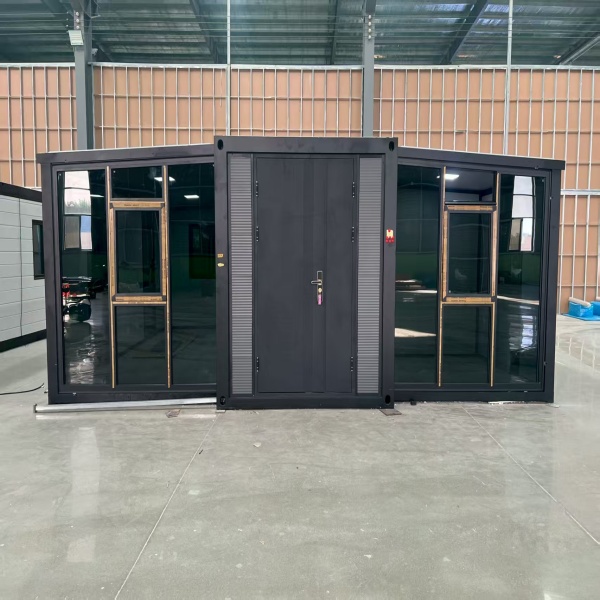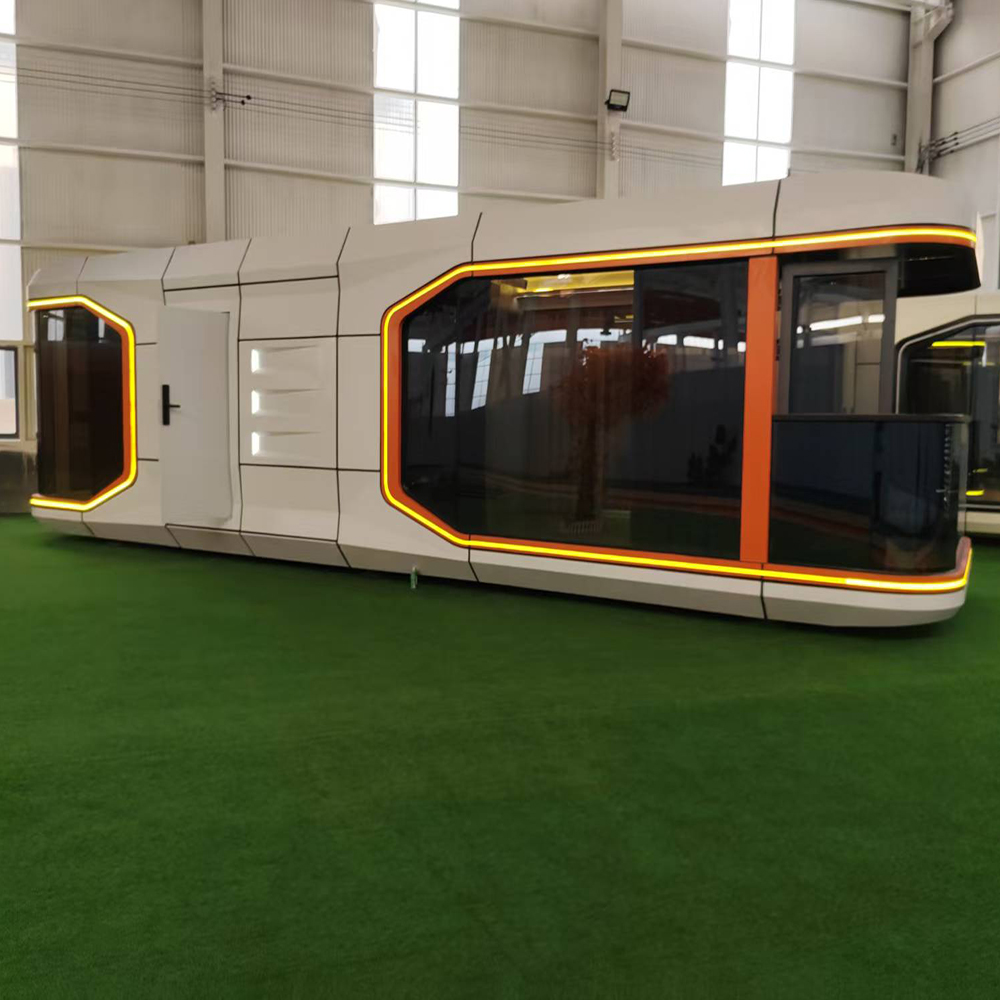-
E-mail
Austin120521@outlook.com -
E-mail
sales@jujiuhouse.com -
Telephone
+86-17864099991 -
Telephone
+86-17854044442
- Chinese
- French
- German
- Portuguese
- Spanish
- Russian
- Japanese
- Korean
- Arabic
- Irish
- Greek
- Turkish
- Italian
- Danish
- Romanian
- Indonesian
- Czech
- Afrikaans
- Swedish
- Polish
- Basque
- Catalan
- Esperanto
- Hindi
- Lao
- Albanian
- Amharic
- Armenian
- Azerbaijani
- Belarusian
- Bengali
- Bosnian
- Bulgarian
- Cebuano
- Chichewa
- Corsican
- Croatian
- Dutch
- Estonian
- Filipino
- Finnish
- Frisian
- Galician
- Georgian
- Gujarati
- Haitian
- Hausa
- Hawaiian
- Hebrew
- Hmong
- Hungarian
- Icelandic
- Igbo
- Javanese
- Kannada
- Kazakh
- Khmer
- Kurdish
- Kyrgyz
- Latin
- Latvian
- Lithuanian
- Luxembou..
- Macedonian
- Malagasy
- Malay
- Malayalam
- Maltese
- Maori
- Marathi
- Mongolian
- Burmese
- Nepali
- Norwegian
- Pashto
- Persian
- Punjabi
- Serbian
- Sesotho
- Sinhala
- Slovak
- Slovenian
- Somali
- Samoan
- Scots Gaelic
- Shona
- Sindhi
- Sundanese
- Swahili
- Tajik
- Tamil
- Telugu
- Thai
- Ukrainian
- Urdu
- Uzbek
- Vietnamese
- Welsh
- Xhosa
- Yiddish
- Yoruba
- Zulu
- Kinyarwanda
- Tatar
- Oriya
- Turkmen
- Uyghur

China prefabricated folding container house
Understanding the Rise of Prefabricated Folding Container Houses in China
The advent of China prefabricated folding container houses has created quite a buzz in the housing industry. There’s a common assumption that these structures are a modern-day novelty, but the concept has deeper roots than most might think. While some see them as temporary structures or emergency solutions, the potential they hold is far greater and deserves a closer look.
The Basics of Prefabricated Folding Container Houses
At the core, a prefabricated folding container house is a modular building solution that’s constructed in a factory setting. The term 'folding' often puzzles newcomers because it implies flexibility—rightly so. These units can be collapsed for easy transportation and unfolded when needed, making them both cost-effective and time-efficient.
In my experience working with companies like Shandong Jujiu Integrated Housing Co., Ltd., transportation is a vital factor. The ease with which these units can be shipped and installed significantly impacts project timelines and the overall feasibility of remote developments.
Drawing from a specific project, I’ve seen how deploying folding container houses can rapidly turn a barren site into a functioning community. These structures are not just pragmatic; they can be surprisingly durable when engineered correctly.
Advantages and Features
The advantages of folding container houses extend beyond portability. Durability comes up often in client discussions. Containers can withstand harsh weather conditions, which is crucial in climates that range from torrential monsoons to biting winters.
Customization is another strong point. When working with firms like SHANDONG JUJIU INTEGRATED HOUSING CO,LTD, which offers a comprehensive suite of design and production services, customization is more about understanding needs than pushing products. The ability to adapt design specifications to client needs—everything from a light steel villa to a complex curtain wall engineering project—opens up possibilities that rigid traditional structures simply don't provide.
But it’s important to consider insulation and environmental impact as well. Many of the newer models integrate sustainable materials and energy-efficient designs, something that was largely overlooked in earlier iterations. As a result, prefabricated container houses are becoming a more viable option for eco-conscious buyers.
Challenges in Adoption
Despite the many benefits, there are hurdles. Regulatory compliance can be a major sticking point. Different regions have diverse building codes, which means thorough research and adjustment are often required before installation.
Skepticism is another challenge. Many still equate container homes with impermanence, which makes potential buyers hesitant. It's a matter of perception; proving performance with real-world examples often changes minds.
The availability of reliable suppliers is key. Companies like Jujiu—accessible at their website—provide not only the product but the necessary assurance of quality and compliance, which is vital for the sector’s credibility.
Real-World Applications
One project that stands out was a temporary medical center requiring rapid deployment in an earthquake-stricken area. With time being a crucial factor, prefabricated folding container houses allowed the team to establish a fully operational facility within days rather than weeks.
Comparatively, a residential project I managed used these units as accessory dwelling units (ADUs), aiming to address urban housing shortages. While regulatory barriers initially seemed daunting, the flexibility of design and rapid installation proved to be winning factors in the long run.
These examples, among others, illustrate the practical advantages of folding container houses beyond their stereotypical uses. They showcase not only speed but also adaptability, which is a big selling point in today’s fast-paced world.
Future Outlook
Looking forward, the industry sees a marked shift towards integrating smart technology. Smart homes aren't just about luxury anymore; they offer significant efficiency gains, which makes them a natural evolution for container houses as well.
Collaborating with tech firms to integrate IoT solutions could redefine what prefabricated homes can offer. It's not just about being a house anymore; it's about being a hub for its occupants, balancing utility with an increasing demand for connectivity.
As the market grows, the pool of knowledge and innovation around China prefabricated folding container houses continues to expand, promising even more robust and exciting developments. It’s an exciting time to be part of the industry and watch as these structures move from niche to mainstream.
Related products
Related products
Best selling products
Best selling products-
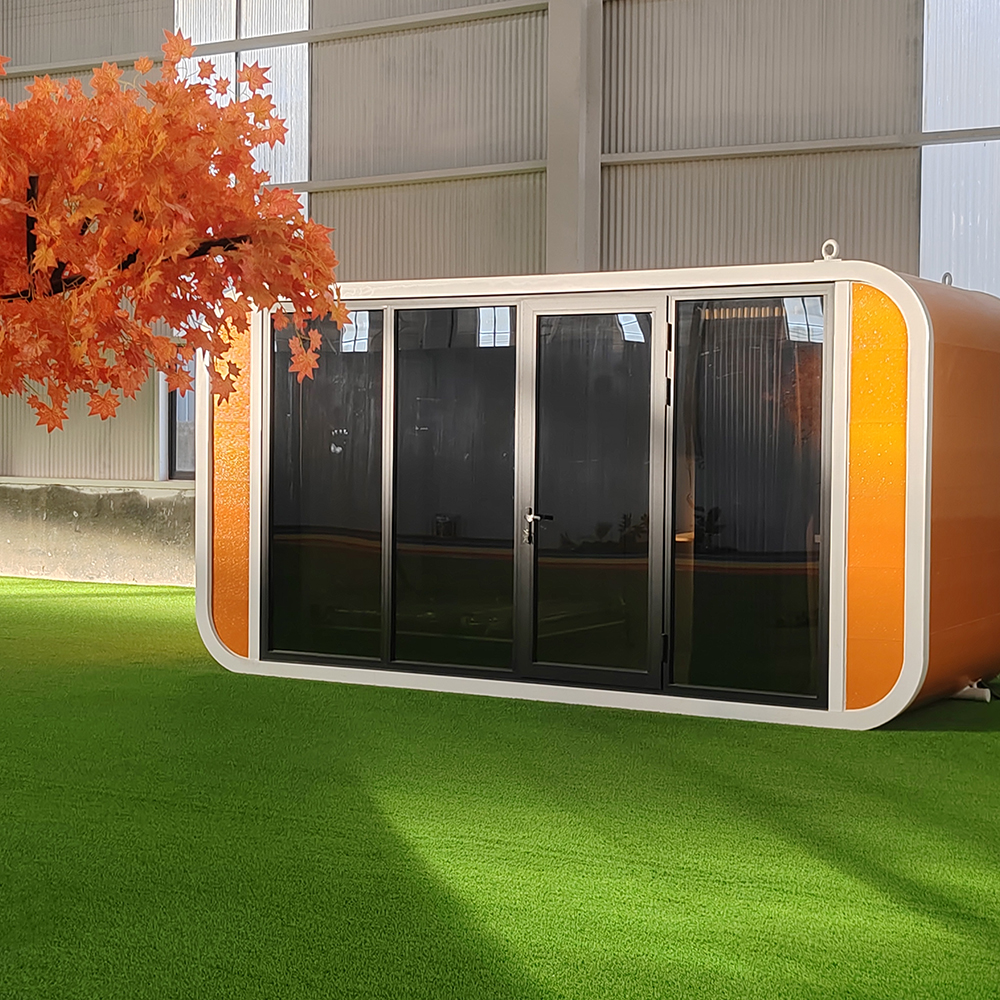 Luxury Prefabricated Living Container House Modular Glass Tiny House Prefab Container Home Apple Cabin
Luxury Prefabricated Living Container House Modular Glass Tiny House Prefab Container Home Apple Cabin -
 Reasonable Price 1 Bedroom Modular Container House Folding Container Home for Villa or Apartment Use
Reasonable Price 1 Bedroom Modular Container House Folding Container Home for Villa or Apartment Use -
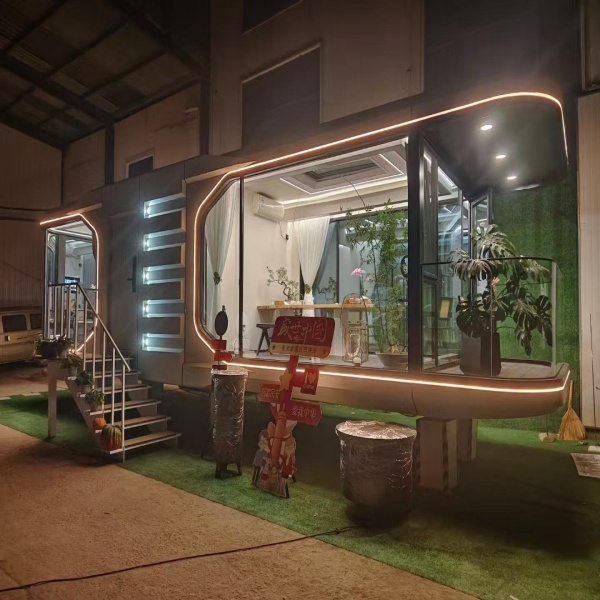 Outdoor ecological capsule rooms, luxury pods, space capsule hotel rooms, prefabricated space capsules, container houses
Outdoor ecological capsule rooms, luxury pods, space capsule hotel rooms, prefabricated space capsules, container houses -
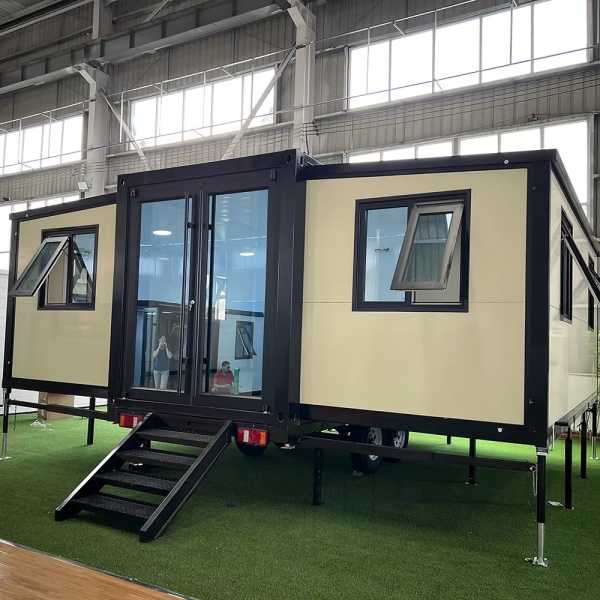 Stair Access Double Wing Expandable Container House | Easy Installation Mobile Office
Stair Access Double Wing Expandable Container House | Easy Installation Mobile Office -
 Good Quality Modular Homes Prefabricated House Expandable Container House 20FT Mobile Flat Roof House
Good Quality Modular Homes Prefabricated House Expandable Container House 20FT Mobile Flat Roof House -
 A container house with a terrace and double-wing folding design, suitable for various purposes such as offices, meeting rooms, living rooms, etc.
A container house with a terrace and double-wing folding design, suitable for various purposes such as offices, meeting rooms, living rooms, etc. -
 Factory Direct Sales Office Folding Container Luxury House Living Container House
Factory Direct Sales Office Folding Container Luxury House Living Container House -
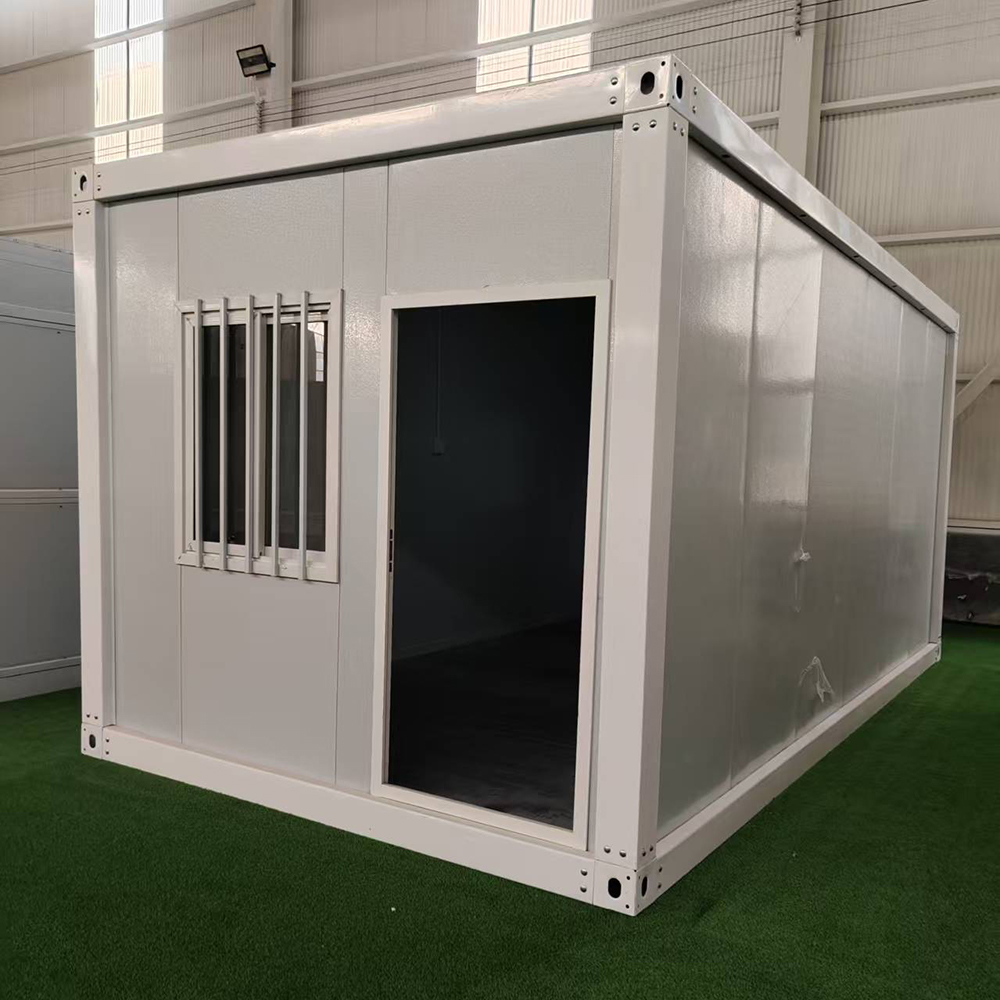 Folding Container Moving House Modular Office Container House Prefab Container for Outdoor Use
Folding Container Moving House Modular Office Container House Prefab Container for Outdoor Use -
 Luxury Foldable Two Story Container House for Glamping Resort and Villa Hotel
Luxury Foldable Two Story Container House for Glamping Resort and Villa Hotel -
 High-quality Double-wing Folding Container House with Doors and Windows, Insulated Walls, Suitable for Various Scenarios.
High-quality Double-wing Folding Container House with Doors and Windows, Insulated Walls, Suitable for Various Scenarios. -
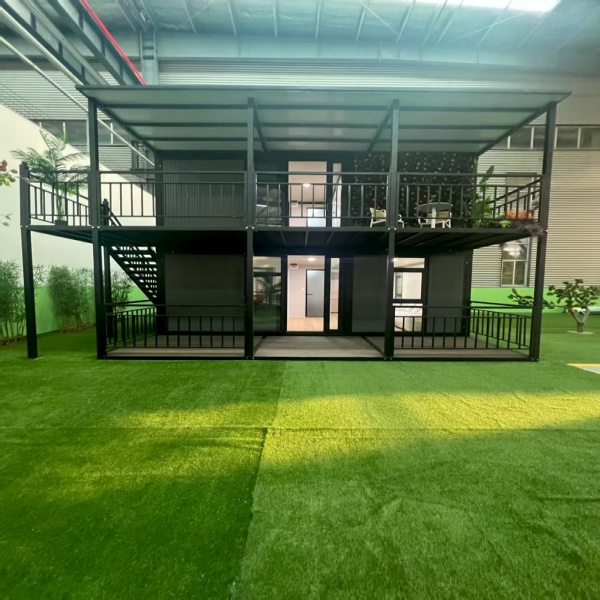 Luxury foldable two-story container houses in luxury resort hotels and villa hotels
Luxury foldable two-story container houses in luxury resort hotels and villa hotels -
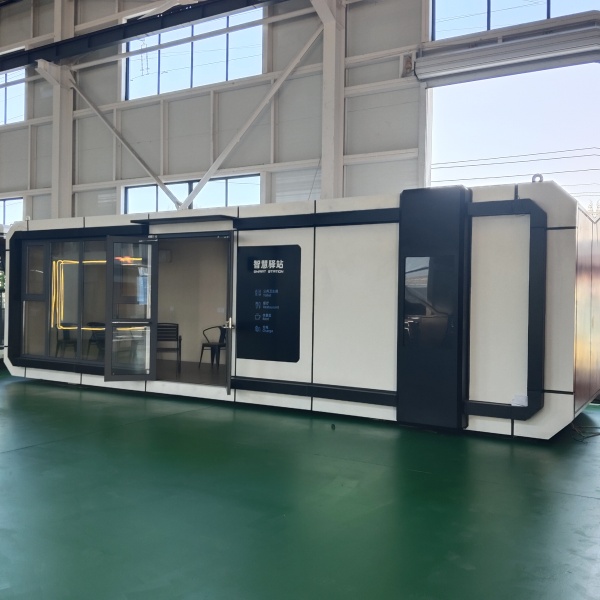 Modular modern movable apple cabins, customized high-end folk houses and portable bedrooms, delivered as a whole
Modular modern movable apple cabins, customized high-end folk houses and portable bedrooms, delivered as a whole
Related search
Related search- China folding container house
- folding house boxabl
- assembled two bedroom home prefab expandable container house
- China cabins near apple barn
- fold out container house
- Buy expandable prefab container house
- 50000 folding house
- cabins on apple valley road
- fold out homes from shipping containers
- Buy folding container house











